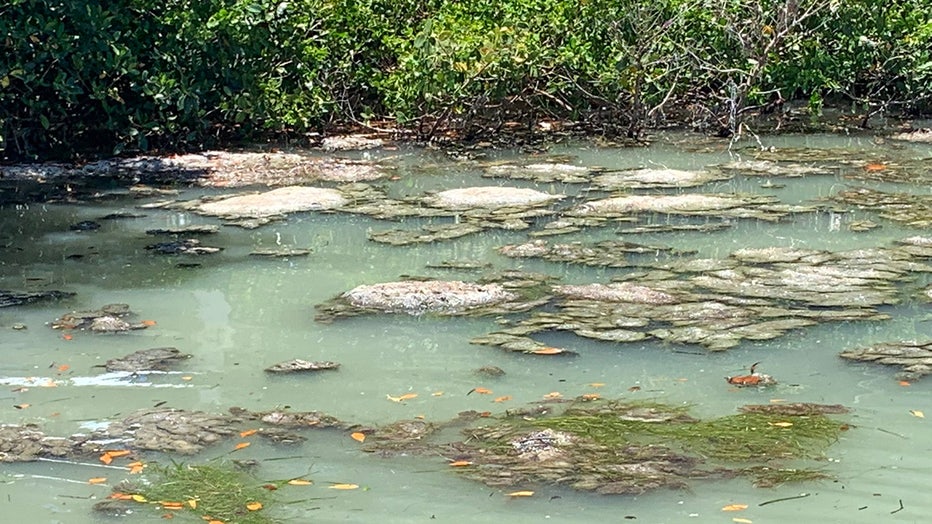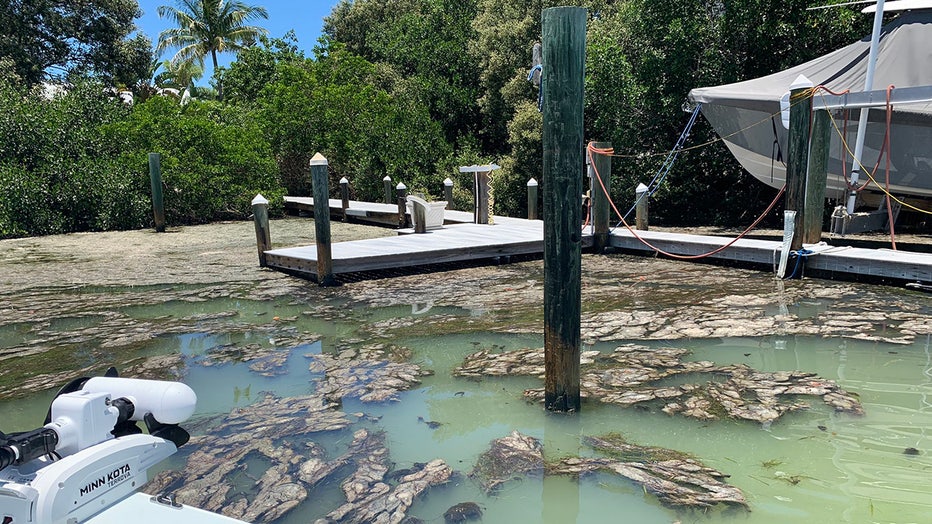Stinky 'snot grass' algae clogging water off Anna Maria Island
ANNA MARIA, Fla. - There's an algae floating in the bay. Locals call it snot grass; scientists know it as Lyngbya. Whatever you call it, it's causing problems.
"In fishing terms, we call this a shoreline that’s turned over," explained Captain Todd Romine, the owner Back Country Sport Fishing.
Romine has fished in the bay off Anna Maria Island for 35 years.
"It's unfishable," he continued, pointing at the mess Friday. "You won’t find anything that’s in this type of environment."
Lyngbya grows on the sea floor. It can choke out seagrass beds and form stinky mats that float.
As it decomposes, Lyngbya can suck the oxygen out of the water.

"This does occur naturally, but not to this extent. We know this has been greatly enhanced by nutrients in our water," he said.
Nutrients can come from fertilizer runoff or septic tanks.
Two months ago, 215 million gallons of nutrient-rich wastewater spilled into Tampa Bay from Piney Point.
RELATED: Trail of dead fish leads to Piney Point, prompting concern
Captain Romine said, whatever the cause, it needs to end.
"We kill seagrass, we kill our habitat for our crab and shrimp. In turn we have no food source for our fish. It’s just a domino effect how it works," he continued.
Suncoast Waterkeeper documented the Lyngbya bloom before Piney Point occurred. After the release of wastewater, they said it's grown unlike any bloom they've seen.

"This is a perfect opportunity for some of these people in government to take a true leadership role and that leadership rule would be tackling this problem at the root. And that would be all the nutrients and runoff water in the bay," said Suncoast Waterkeeper board member Rusty Chinnis.
RELATED: Pinellas issues red tide alert for beaches
Manatee County said they are looking into options including skimmer vessels and contractors to remove the rotten alga from county areas.
"We've been working on this for six weeks before we even saw what was happening just in case there was a bloom. And now it's in front of us," said County Administrator Dr. Scott Hopes.
Now that it's here, Captain Romine said it's a problem that needs a long term solution.
"If we don’t do something to prevent these types of nutrients from going into our bays and estuaries, we will destroy our bays and estuaries," he warned.


